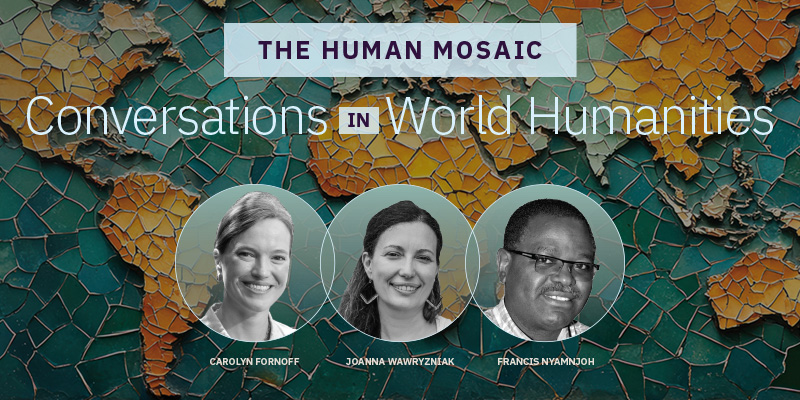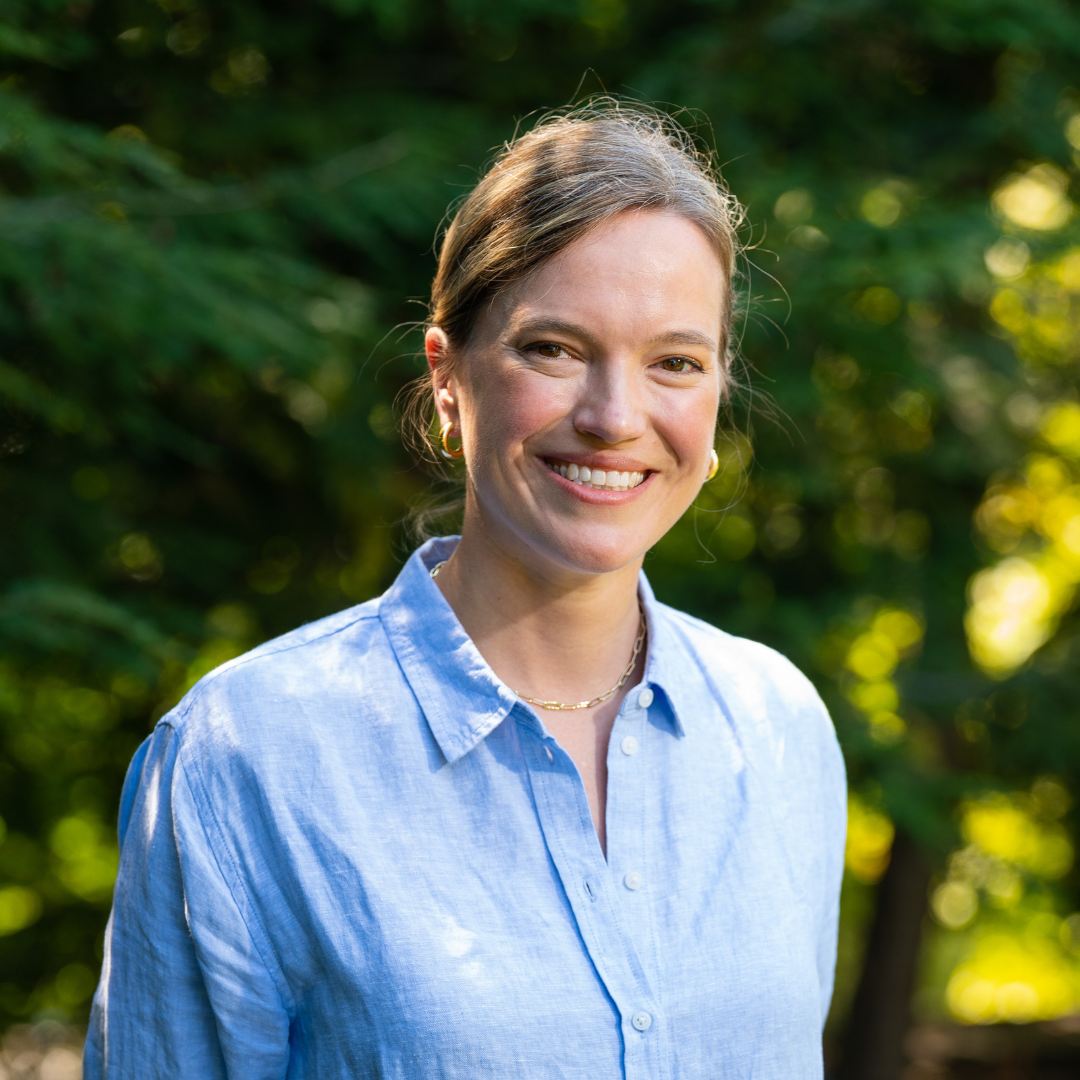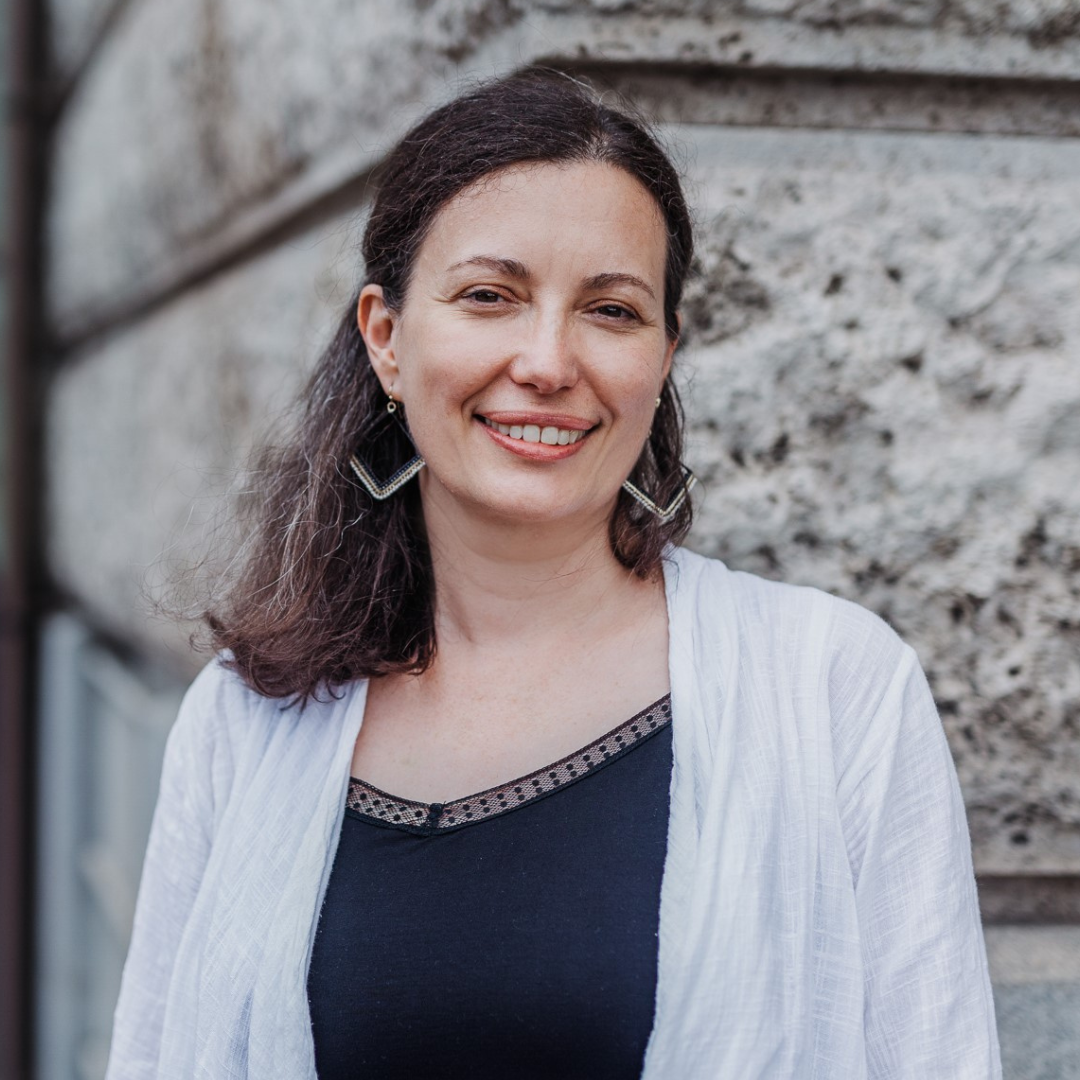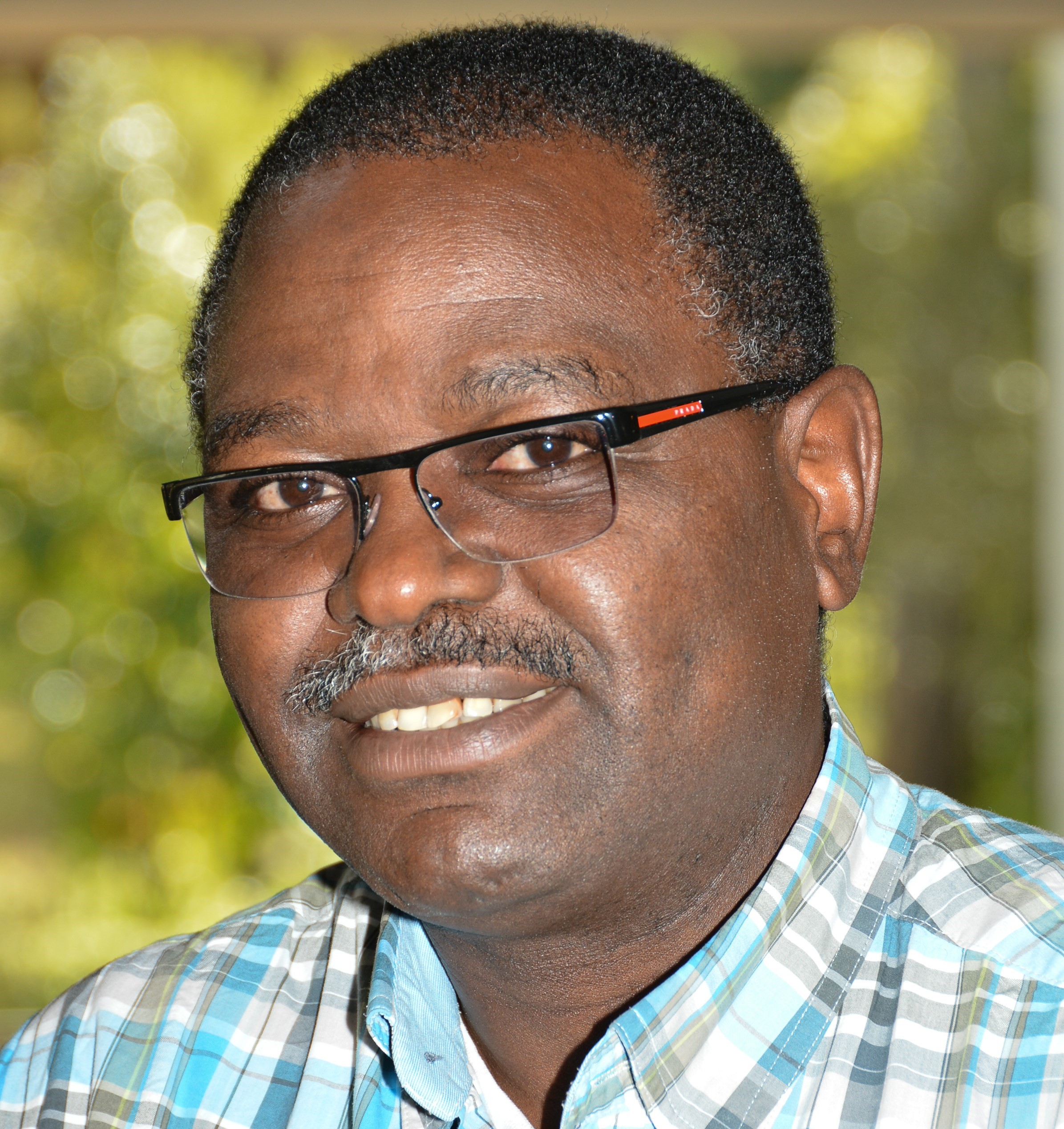
Speaker Series 2025-26
The UF Center for the Humanities and the Public Sphere invites you to the 2025-2026 speaker series The Human Mosaic: Conversations in World Humanities, an interdisciplinary exploration of how the humanities illuminate the complexity of human experience across cultures, histories, and disciplines.
This series brings together scholars from around the globe to reflect on how traditions of thought, expression, and understanding emerge in diverse contexts—and how they intersect, collide, and resonate in our interconnected world. By fostering dialogue across geographies and perspectives, we reimagine the humanities as a dynamic space of exchange that bridges boundaries and enriches our collective understanding of what it means to be human.
This series is co-sponsored by:
SPEAKERS
Fall 2025

Carolyn Fornoff, PhD Associate Professor of Latin American Studies
“Land Defense and the Aesthetics of Mourning in Mexico”
Wednesday, November 5 | 4 – 5:30 p.m.
Smathers 100
WORKSHOP: “The Environment in the Novel, or, the Novel in the Environment”
Wednesday, November 5 | 10 – 11:30 a.m.
TBA
ABOUT THE TALK
Dr. Fornoff will examine how cultural responses to the sustained violence against Indigenous land defenders in Mexico extend beyond elegiac, martyr-centered representation. While reverent portrayals remain vital in the face of extractivist efforts to delegitimize land defense, Fornoff will highlight irreverent, playful, and ludic aesthetic modes that depict land defenders as not only heroic but also desiring and rageful subjects—expanding how resistance, grief, and agency are imagined in contemporary Mexican culture.
RSVP to attend
ABOUT THE WORKSHOP
This small-group workshop explores how novels both represent and are shaped by the environments in which they emerge. Drawing on her essay for The Routledge Companion to the Novel, Dr. Fornoff introduces “environment” as a critical keyword for literary studies, examining how settings, climates, and ecological conditions influence narrative form and meaning. Using examples that span Latin America, Asia, the United States, and Europe, the workshop invites participants to consider how environmental contexts shape literary traditions across regions and histories. Designed for scholars in literary studies and the environmental humanities, the session also welcomes participants from environmental sciences interested in how literature can deepen our understanding of human–environment relations.
Interested in attending? Please contact us at humanities-center@ufl.edu to join.
co-sponsored by:
Carolyn Fornoff is a scholar of environmental humanities whose research examines cultural responses to ecological crisis in Latin America, especially Mexico and Central America. She is the author of Subjunctive Aesthetics: Mexican Cultural Production in the Era of Climate Change (Vanderbilt UP, 2024), winner of the 2025 LASA Mexico Forum Best Book in the Humanities Prize, and coeditor of Timescales: Thinking Across Ecological Temporalities (2020) and Pushing Past the Human in Latin American Cinema (2021). Her work explores how literature, film, and visual culture engage questions of climate change, temporality, and more-than-human life. At Cornell, Fornoff contributes to the Humanities Council, Environment and Sustainability, and Latin American and Caribbean Studies, while also serving on the advisory boards of Hispanic Review and ISLE.
Spring 2026

Joanna Wawrzyniak, PhD, Associate Professor, Director of the Center for Research on Social Memory
“Slow Memory in Eastern Europe: Deindustrialization, Heritage, and Layered Time”
Wednesday, February 4 | 4 – 5:30 p.m.
Smathers 100
READING GROUP: TBA
Wednesday, February 4 | TBA
TBA
ABOUT THE TALK
Slow Memory is an approach to interpreting how societies remember long-term processes. From this perspective my lecture discusses industrial museums and post-industrial heritage sites in Eastern Europe. Moving beyond “eventful” memory centered on 1989–1991 as a singular rupture in the region’s history, the lecture focuses on the layered temporalities through which industrial pasts persist: the longue durée of industrialization, the uneven effects of deindustrialization, and the anticipatory time shaped by the changing regimes of work and the consequences of environmental degradation. Drawing on comparative fieldwork in Poland, Lithuania, and Armenia, it traces three distinct trajectories of industrial memory – eclectic, repressed, and fragmentary –showing how museums, ruins, and activists mediate loss, continuity, and expectations about the future. The lecture argues that industrial heritage in post-socialist contexts functions not merely as a site of nostalgia, but as a key arena in which competing visions of the future are negotiated through material culture.
ABOUT THE WORKSHOP
TBA
Interested in attending? Please contact us at humanities-center@ufl.edu to join.
co-sponsored by:
Joanna Wawrzyniakis Associate Professor of Sociology and founding director of the Center for Research on Social Memory at the University of Warsaw. She served as President of the Memory Studies Association (2024–2025) and as Vice Chair of the pan-European COST Action Slow Memory (2022–2025). Her research examines social memory in relation to Eastern Europe, with a particular focus on museums, industrial heritage, and oral history. Her recent publications include the forthcoming co-edited volumes Slowing Down Memory Studies: Theory and Practice of Remembering for Transformative Change (Bloomsbury, with Jenny Wüstenberg) and Decolonial Museology Re-centered: Thinking Theory and Practice through East-Central Europe (De Gruyter, with Erica Lehrer and Łukasz Bukowiecki)

Francis Nyamnjoh, PhD, Professor of anthropology at the University of Cape Town in South Africa
“AI as the Future in the Rearview Mirror: African Inspirations”
Wednesday, April 8 | 4 – 5:30 p.m.
Smathers 100
READING GROUP: Digital Uprising: The Flower of Freedom in Mimboland
Tuesday, April 7 | Time TBA
The Lynx Bookstore
ABOUT THE TALK
This lecture will reframe Artificial Intelligence through the African concept of Juju—a potent, ethically ambivalent technology of self-extension. Dr. Nyamnjoh argues that many fears about AI supremacy grow from a “delusion of completeness” we often nurture, and instead offers an African ontology of incompleteness and compositeness that centers conviviality and interdependence. Attendees are invited to see AI as a complementary tool, not a substitute. The real danger, the talk argues, lies less in autonomous machines than in the coloniality of data and extractive capitalism. Drawing on African inspirations, it calls for “domesticating” AI to reflect communal values so that it enhances, rather than replaces, human judgment and our ethical core.
co-sponsored by:
Francis Nyamnjoh is Professor of Social Anthropology at the University of Cape Town, where he has taught since 2009. Trained at the University of Yaounde and the University of Leicester, he has held academic posts in Cameroon and Botswana and previously served as Head of Publications at CODESRIA. His research spans citizenship, belonging, mobility, conviviality, and the politics of identity in Africa, with extensive fieldwork in Cameroon and Botswana. Nyamnjoh is the author of numerous influential books, including Africa’s Media, Democracy and the Politics of Belonging (2005), Insiders and Outsiders: Citizenship and Xenophobia in Contemporary Southern Africa (2006), and #RhodesMustFall: Nibbling at Resilient Colonialism in South Africa (2016), winner of the ASAUK Fage & Oliver Prize. Recognized with multiple international awards, he is a fellow of the Cameroon Academy of Science, the African Academy of Science, and the Academy of Science of South Africa, and he serves as Chair of the Board of Langaa Research and Publishing Centre.


